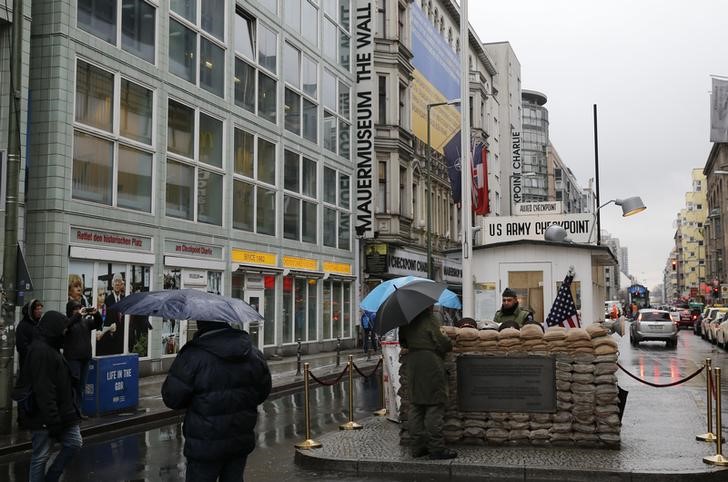By Scott Kanowsky
Investing.com -- Business activity in Germany and France grew in February thanks in part to easing supply chain bottlenecks and a milder-than-usual winter, leading to a pick-up across the broader Eurozone.
S&P Global's monthly flash composite purchasing managers' index for Germany - Europe's largest economy - came in at an eight-month high of 51.1, above economists' estimates of 50.4 and topping the key 50-point threshold that denotes expansion from contraction.
The same figure for France, the second-biggest economy in Europe, jumped up into expansion territory, touching a higher-than-expected seven-month high of 51.6.
The data on Tuesday comes as Europe aims to avoid a recession despite taking a hit from the outbreak of the war in Ukraine last year. Consumer confidence stands at a one-year high and inflation has shown signs of cooling, albeit at elevated levels.
A rapid easing of supply-side constraints on output helped lead to a "broad-based" increase in business activity in Germany, the S&P Global survey said. But with manufacturing new orders still contracting, goods producers remain "only cautiously optimistic" about the year ahead.
In France, meanwhile, the key services sector fueled the first growth in the economy since October 2022.
"However, it’s difficult to say for certain if we’re at an inflexion point and the French economy is now on its path to recovery," said S&P Global Market Intelligence senior economist Joe Hayes. "The manufacturing sector downturn intensified in February, and demand conditions within this sector are clearly still fragile."
The numbers drove business activity in the 20-member Eurozone to a nine-month high of 52.3, up from 50.3 in January and above estimates of 50.6.
Rising demand, healing supply chains, order book backlog reduction and improved confidence underpinned the upturn, S&P Global noted.
